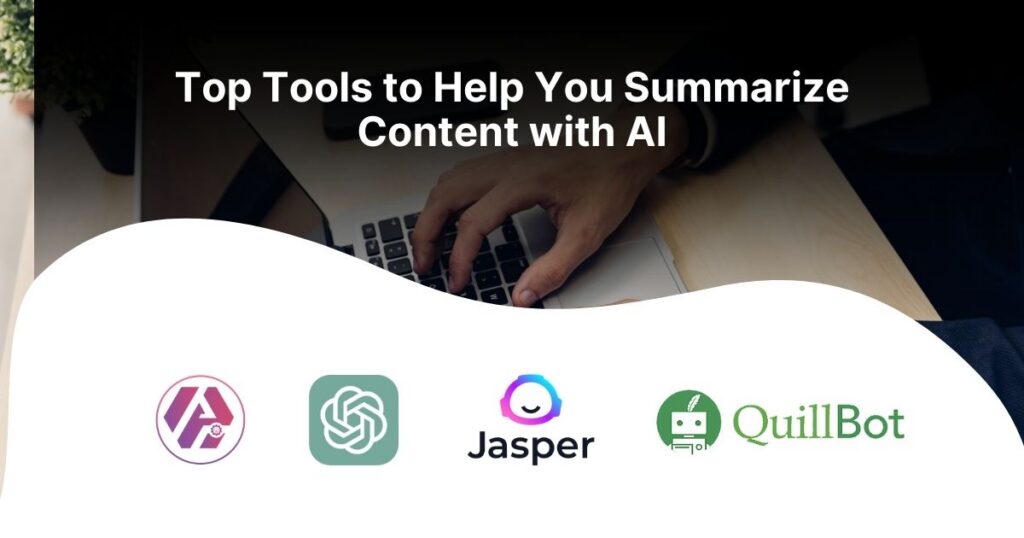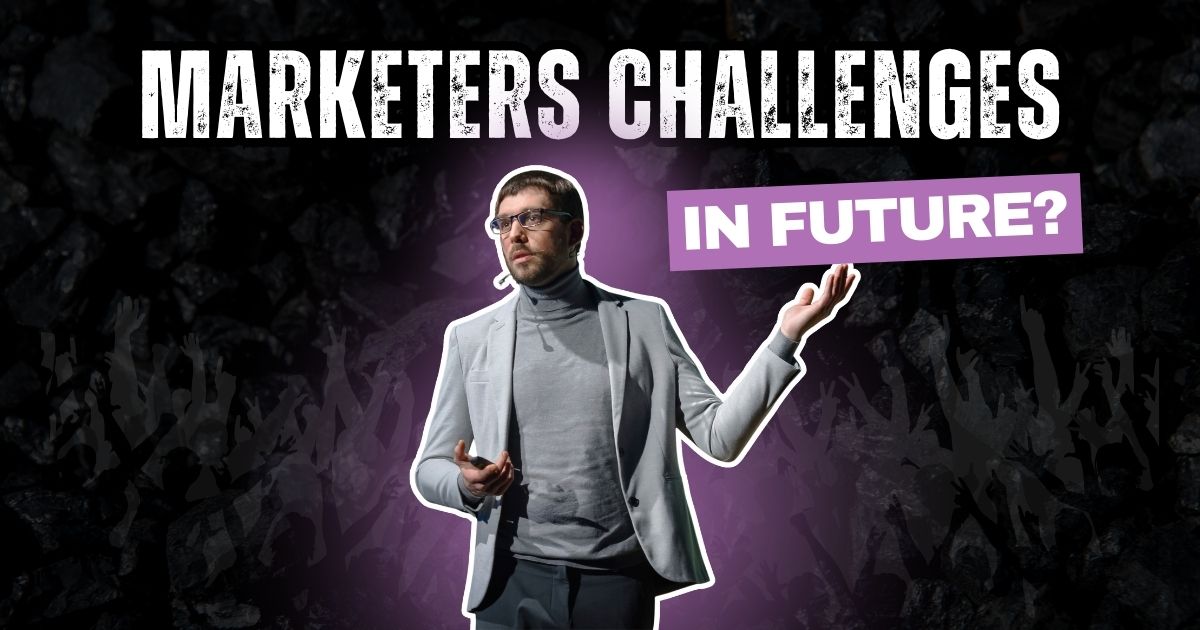Social media marketing is evolving faster than ever, and AI is at the heart of this transformation. From content creation to predictive analytics, AI in social media marketing is helping brands plan, optimise, and automate their campaigns with precision.
Businesses in the UK and beyond are already using AI marketing tools to schedule posts, generate captions, and track engagement, but the future promises even more innovation. In this guide, we’ll explore current trends, tools, challenges, and predictions for AI in social media — giving marketers a practical roadmap for 2025 and beyond.
By the end, you’ll know how to leverage AI-powered content calendars, social media automation AI, and AI-driven social media campaigns to grow your brand while saving time and boosting engagement.
The Current Role of AI in Social Media
AI is no longer just a buzzword in marketing — it’s actively shaping how brands connect with audiences. Today, AI is used in:
- Content creation: Tools for AI content creation help marketers generate captions, posts, and even graphics in minutes.
- Scheduling and automation: AI social media management platforms allow posts to be scheduled across multiple channels at optimal times.
- Analytics and insights: Predictive analytics in social media helps brands understand engagement trends and forecast campaign performance.
Popular AI marketing tools in the UK include PlanPost AI, Jasper AI, and Hootsuite’s AI integrations, which streamline tasks and give marketers more time to focus on strategy rather than repetitive posting.
Why it matters: By adopting AI tools now, brands can maintain a consistent social media presence, respond faster to trends, and improve ROI.
AI-Powered Content Creation and Personalisation
One of the most exciting applications of AI in social media marketing is personalised content creation. AI can analyse audience behaviour, segment followers, and generate posts tailored to each group.
For example:
- AI-powered content calendars suggest the best posting times for each segment.
- AI content creation tools draft captions with relevant hashtags for Instagram, LinkedIn, or TikTok.
- Personalised graphics and videos can be generated using AI video content creation tools.
UK brands leveraging AI social media tools report higher engagement because content feels more relevant and timely, even at scale.
Key takeaway: AI helps marketers maintain authenticity while delivering personalised experiences to their audience.
Predictive Analytics and Audience Insights
Predictive analytics in social media is revolutionising decision-making. Using historical data and AI algorithms, marketers can forecast:
- Engagement spikes on certain types of content
- Optimal posting schedules
- Potential ROI for campaigns before they go live
Tools like AI social listening tools and analytics dashboards track sentiment, monitor trends, and highlight opportunities. This is invaluable for creating AI-driven social media campaigns that resonate with audiences.
Pro tip: Combine AI predictions with human creativity to craft content that truly connects while remaining data-driven.
Automation of Social Media Management
Managing multiple social media accounts can quickly become overwhelming. This is where AI social media management tools come into play. They automate repetitive tasks like scheduling posts, replying to messages, and even curating content — freeing up marketers to focus on strategy and creativity.
1. Scheduling and Posting
AI-powered content calendars allow marketers to plan weeks or even months in advance. These calendars can suggest:
- The best times to post for maximum engagement
- Which type of content works best on each platform
- Reminders for campaigns tied to events, holidays, or promotions
For example, a UK-based fashion brand can schedule Instagram carousels, TikTok videos, and LinkedIn updates all from one AI social media platform. The AI even recommends hashtags and captions tailored to each audience segment.
2. Chatbots and Customer Engagement
AI automation marketing extends beyond posting. AI chatbots respond to queries in real-time, provide product information, and guide users through customer journeys. This improves response times and enhances the customer experience without adding extra manpower.
3. Workflow Optimisation
With AI-driven automation, teams can reduce human error, maintain consistent messaging, and monitor multiple campaigns simultaneously. AI also tracks performance metrics automatically, integrating insights into dashboards that inform future content strategies.
Why this matters: Automation is not about replacing humans — it’s about amplifying their impact. By automating repetitive tasks, marketers can spend more time crafting personalised campaigns, analysing audience behaviour, and using AI insights to optimise social media performance.
AI and Social Listening
Understanding your audience is at the heart of effective social media marketing. This is where AI social listening tools come in. They monitor conversations, brand mentions, and trending topics across platforms, giving marketers actionable insights in real-time.
1. Tracking Brand Mentions and Sentiment
AI social listening tools can detect when your brand is mentioned online, analyse the sentiment (positive, negative, or neutral), and flag urgent issues. For example, a UK retailer could quickly respond to a complaint on Twitter before it escalates, or engage with positive mentions to strengthen customer relationships.
2. Detecting Emerging Trends
AI doesn’t just track what’s happening now — it predicts what’s coming next. By analysing patterns, hashtags, and popular content formats, AI can highlight emerging trends, allowing your marketing team to create content that’s timely and relevant.
3. Informing Smarter Campaigns
The insights from AI social listening tools feed directly into AI-driven social media campaigns. Marketers can:
- Adjust messaging to match audience sentiment
- Identify gaps in content strategy
- Optimise posts for engagement and reach
Practical example: A UK fitness brand might discover that a specific hashtag is trending among their target audience. Using AI, they can quickly create posts around that trend, schedule them via an AI-powered content calendar, and track engagement automatically.
Why it matters: Social listening allows brands to stay ahead of the curve, anticipate audience needs, and build campaigns that resonate — all while reducing guesswork.
Visual and Video Content AI Innovations
Visual content is king on social media, and AI is taking it to a whole new level. From video editing to story creation, AI tools are helping brands create eye-catching, personalised content faster than ever.
1. AI Video Content Creation
AI video content creation tools can automatically edit raw footage, add captions, overlays, and even suggest trending music or effects. UK marketers, for instance, can produce Instagram Reels or TikTok videos tailored to audience preferences without needing a full video editing team.
2. Story and Interactive Content
AI doesn’t stop at videos. AI-powered platforms can design interactive Instagram Stories, polls, quizzes, and AR filters. These features increase engagement and keep audiences coming back for more.
3. Optimising Visuals for Engagement
AI algorithms analyse previous posts to identify what resonates visually with your audience. They can suggest:
- The ideal length for videos
- Colour palettes and fonts that drive higher engagement
- Formats that perform best on each platform
Practical example: A UK fashion brand can upload product clips, and an AI content calendar integrated with AI tools automatically edits them into a carousel or story, adds captions, and schedules posts at peak engagement times.
Why it matters: AI visual and video tools save time, maintain brand consistency, and boost engagement, giving marketers a competitive edge without sacrificing creativity.

Ethics, Authenticity, and AI Transparency
As AI becomes more embedded in social media marketing, ethics and authenticity are more important than ever. While AI can automate content creation and optimise campaigns, brands must ensure that their messaging remains genuine and trustworthy.
1. Avoiding Deepfakes and Misleading Content
AI tools can generate realistic images, videos, and even voiceovers. While this opens creative possibilities, there’s a risk of misleading content or “deepfakes.” UK brands must maintain clear boundaries, ensuring all content aligns with brand values and does not deceive audiences.
2. Maintaining Brand Trust
Using AI for AI-driven social media campaigns is powerful, but overly automated content can feel impersonal. Combining AI insights with human oversight ensures posts remain relatable and authentic. For example: a chatbot can handle FAQs, but a human touch in responses builds deeper engagement and trust.
3. Transparency with AI Usage
Being transparent about AI use is increasingly expected by audiences. Brands can mention when content is AI-assisted or clarify automated processes to strengthen credibility. This also mitigates potential backlash and regulatory risks.
4. Regulatory Considerations
In the UK, data privacy, advertising standards, and online safety regulations influence how AI can be used in social media. Staying compliant protects your brand and your audience.
Why it matters: Ethics and transparency aren’t just legal obligations — they’re central to maintaining long-term relationships with your audience. AI in social media marketing works best when humans guide it responsibly.
Challenges and Limitations of AI in Social Media
While AI in social media marketing offers incredible advantages, it’s not without its limitations. Understanding these challenges helps brands use AI effectively while maintaining creativity and authenticity.
1. Risk of Over-Automation
Relying too heavily on AI social media management can make content feel generic or robotic. Automated posts are efficient, but without human input, campaigns may lack personality and emotional resonance.
2. Creativity Limitations
AI tools excel at generating captions, graphics, and videos based on existing data. However, they may struggle with innovative or culturally nuanced content. Human creativity is still essential to craft campaigns that truly stand out.
3. Data Dependency
AI-driven insights rely on accurate, comprehensive data. Poor-quality or limited data can lead to misguided recommendations in AI-driven social media campaigns, such as posting at suboptimal times or targeting the wrong audience segment.
4. Cost and Learning Curve
Some AI tools, especially advanced analytics or video creation platforms, can be expensive. Teams also need time to learn and integrate AI tools effectively, which may be challenging for smaller UK brands with limited resources.
5. Ethical Considerations
Even with automation, ethical challenges remain — from avoiding misleading content to protecting user data. Brands must actively monitor AI outputs to ensure compliance with UK regulations.
Key takeaway: AI is a powerful partner, but it works best when combined with human oversight. The goal is to enhance strategy, not replace human judgment, ensuring campaigns remain creative, authentic, and audience-focused.

Tools and Platforms Leading the Future
AI in social media marketing is only as powerful as the tools you choose. With a wide range of AI marketing tools available, selecting the right platforms is essential for creating efficient, impactful campaigns.
1. AI-Powered Content Calendars
Platforms like PlanPost AI and Lately AI allow marketers to plan, schedule, and optimise posts across multiple channels. These tools integrate AI social media management features, providing recommendations for:
- Posting times based on engagement data
- Captions and hashtags tailored to audience segments
- Content formats that perform best on each platform
2. AI Content Creation Tools
Tools like Jasper AI, Copy.ai, and Writesonic help create compelling captions, blog snippets, and ad copy. They reduce the time spent on repetitive writing tasks while allowing teams to maintain a consistent brand voice.
3. Social Listening and Analytics Platforms
Platforms such as Brandwatch, Sprout Social, and Hootsuite Insights monitor conversations, sentiment, and trending topics. Using AI social listening tools, marketers can track brand mentions, detect emerging trends, and feed insights directly into AI-driven social media campaigns.
4. Visual and Video AI Tools
AI-driven platforms like Runway, Synthesia, and Canva Pro’s AI features allow brands to create polished visuals and videos quickly. Features include automated editing, text-to-video conversion, and AR/interactive content creation, making it easier to produce highly engaging posts at scale.
5. Recommendations for UK Brands
- Small businesses: Start with AI content calendars and basic social listening tools to improve efficiency.
- Medium to large brands: Integrate full-scale AI suites that combine content creation, analytics, and automation.
- Global campaigns: Use advanced predictive analytics and AI-driven engagement optimisation to fine-tune campaigns across regions.
Why it matters: Using the right AI tools lets marketers focus on strategy and creativity, while automation, predictive insights, and personalised content increase engagement and ROI.
Future Trends and Predictions
The future of AI in social media marketing promises exciting innovations that will change how brands plan, create, and engage with audiences. Staying ahead of these trends is key for marketers in 2025 and beyond.
1. Hyper-Personalisation
AI will increasingly enable hyper-personalised content for individual audience segments. From captions and visuals to product recommendations, AI tools can tailor posts based on behavioural data, location, and past interactions, making campaigns more relevant and effective.
2. Predictive Posting and Trend Forecasting
Predictive analytics in social media will allow brands to anticipate engagement trends before content goes live. AI can forecast the best posting times, optimal content types, and trending topics, helping marketers stay one step ahead.
3. AI-Generated Video and Interactive Content
AI-powered video content creation will continue to evolve, making it easier to produce professional-looking videos, AR filters, and interactive stories without a full creative team. UK brands can leverage this to engage audiences in more dynamic and immersive ways.
4. Multi-Platform Integration
AI tools are increasingly capable of managing campaigns across multiple platforms from a single dashboard. This streamlines workflow, ensures brand consistency, and allows marketers to track performance holistically.
5. Smarter Analytics and ROI Tracking
AI-driven insights will not only track engagement but also measure conversions, predict ROI, and recommend optimisations. This level of insight ensures social media strategies are data-driven and results-focused.
6. Ethical AI and Responsible Automation
As AI grows more sophisticated, ethical considerations will remain crucial. Transparency about AI usage, avoiding misleading content, and safeguarding user data will be essential components of future social media campaigns.

Actionable Steps for Marketers
Understanding the future of AI in social media marketing is one thing, but implementing it effectively is what makes the difference. Here are practical steps UK marketers can take today to harness AI tools and stay ahead of the curve.
1. Start with an AI-Powered Content Calendar
Use platforms like PlanPost AI or Lately AI to organise posts across multiple channels. A well-structured AI social media management system allows you to:
- Schedule posts in advance
- Optimise captions and hashtags
- Track engagement automatically
2. Experiment with AI Content Creation
Leverage AI content creation tools such as Jasper AI or Copy.ai to generate captions, blog snippets, and short videos. Start small and review outputs carefully to maintain brand voice and authenticity.
3. Monitor Trends with AI Social Listening Tools
Use tools like Sprout Social or Brandwatch to track mentions, analyse sentiment, and detect emerging trends. Integrate these insights into AI-driven social media campaigns for timely, relevant content.
4. Combine AI Insights with Human Creativity
While AI handles automation and analytics, human oversight ensures content remains engaging and relatable. Pair predictive analytics with creativity to craft campaigns that resonate emotionally with your audience.
5. Evaluate Performance and Optimise
Track key metrics such as engagement, reach, and conversions using AI dashboards. Use these insights to refine your content strategy, experiment with new formats, and improve ROI.
6. Stay Ethical and Transparent
Clearly communicate when content is AI-assisted, and avoid over-automation that could feel impersonal. Respect data privacy and adhere to UK regulations to maintain audience trust.
Pro Tip: Start with small AI implementations, measure the impact, and gradually scale. By integrating AI thoughtfully, brands can boost efficiency, increase engagement, and future-proof their social media marketing strategy.
Conclusion
AI is reshaping social media marketing, from AI-powered content calendars and automation to predictive analytics and hyper-personalised campaigns. While AI offers efficiency and insights, human creativity, ethical oversight, and authentic engagement remain irreplaceable.
By understanding the current landscape, adopting the right tools, and preparing for future trends, marketers can harness AI to create smarter, more effective social media strategies in 2025 and beyond.
